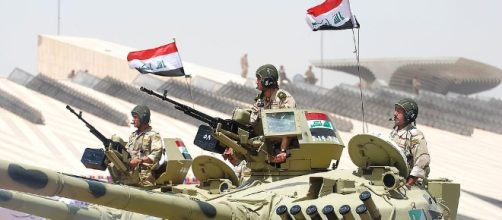The United States appears to be increasing its involvement in the affairs of the Middle East. In Yemen, it has launched a maximum number of airstrikes during this month. It has airlifted Syrian forces to the front line positions, and, has been accused of causing a large number of civilian casualties. In Iraq, it launched an attack to recapture Mosul for which it dispatched troops along with aerial support. This was on March 17 and scores of lives were lost in the airstrikes.
The changing scenario
The New York Times reports that the United States military appears to be increasing its involvement in affairs of the Middle East countries and engaging in a series of complex wars.
This is not indicative of any new doctrine of the Trump administration on military action. It is perceived as a new decision-making process for the military because Donald Trump wants the military to fight so that a win is ensured.
Gen. Joseph L. Votel, the commander of United States Central Command, has explained that such a scenario gives more power to the field commanders and they can order airstrikes without waiting for permission from more senior officers. He elaborated that since the nature of the fight was changing, it was necessary to empower the on-scene commander. Examples were the fights in Syria and Iraq against the Islamic State which were in critical phases in Mosul and Raqqa.
What's in store?
One of the strategies is to increase deployment and use of American forces. In the case of Yemen, it is resumption of aid to allies that had been suspended. These are discreet pointers to the policies of Donald Trump. He has made it his priority to intensify the fight against extremists abroad, and, his approach is military first. To achieve this, he wants to cut down on diplomatic spending and there could be more such changes coming.
In the opinion of critics, the lack of diplomacy and future planning in Yemen and Syria could make it difficult for the U.S. and its allies to record victories. Moreover, there are genuine fears in some quarters that increased military involvement could be detrimental to the interests of the United States because the country could end up in murky wars with increased civilian deaths.
If that happens, it could backfire with disastrous results.
The intensity of the war that is presently raging in the Middle East is evident from information furnished by General Votel. It seems in the past 37 days a total of 284 Iraqi forces were killed and another 1,600 wounded in the battle for Mosul.

